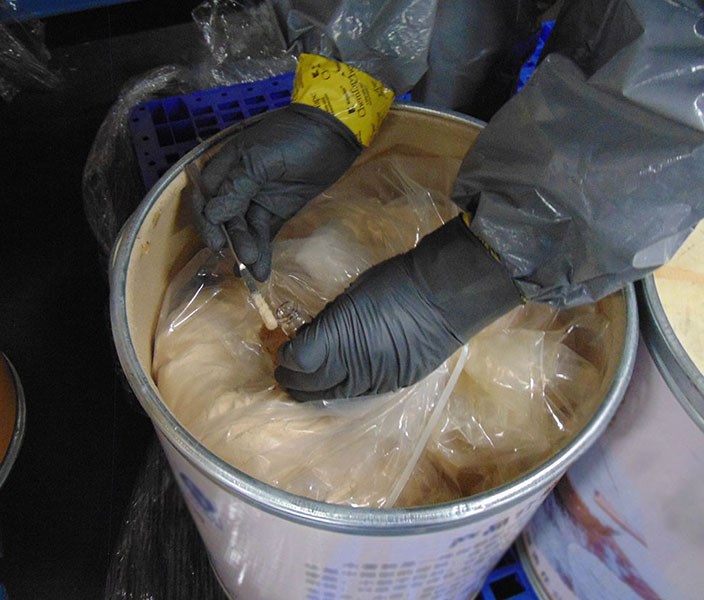The Canada Border Services Agency’s (CBSA) Metro Vancouver Marine Operations team has seized approximately 1,500 kg of 4-Piperidone, a precursor chemical essential to the production of fentanyl.
On July 16, border services officers examined a marine container that was declared as household goods. Officers found that the container contained a large quantity of an unknown chemical substance. They collected samples and sent them to the CBSA’s Contraband Drug Analysis Section for confirmation. The analysis confirmed the chemical to be 4-Piperidone, a Class A precursor under the Controlled Drugs an Substances Act, commonly used in the production of controlled substances such as fentanyl.
While the opioid crisis remains an ongoing issue across Canada, this intercept prevented a significant amount of chemicals from reaching our communities. The CBSA estimates the 1,500 kg of 4-Piperidone could have had the potential to produce over 2 billion doses of fentanyl.
This seizure will help reduce the contamination of the illegal drug supply with highly toxic substances, potentially saving many lives.
“The opioid crisis has affected Canadians across the country but nowhere more so than here in British Columbia. This seizure of chemicals has kept potentially billions of doses of fentanyl off the streets in our communities. The Canada Border Services Agency is firmly committed to protecting Canadians by stopping the illegal movement across our borders of controlled substances and precursor chemicals that are contributing to the opioid crisis,” Nina Patel, Regional Director General, Pacific Region, Canada Border Services Agency.
Border services officers are highly trained in examination and investigative techniques to analyze risk and intercept prohibited goods from entering Canada. Officers look for indicators of deception and use intelligence as well as a risk-management approach in determining which goods may warrant a closer look.
“The work of our border services officers cannot be understated. This seizure is a great example of how their vigilance, commitment, and dedicated efforts have a real impact on the health and well-being of Canadians and the safety of our communities,” added Joseph Chayeski, Director, Metro Vancouver District, Pacific Region, Canada Border Services Agency.



